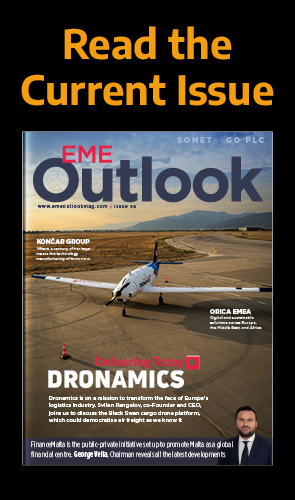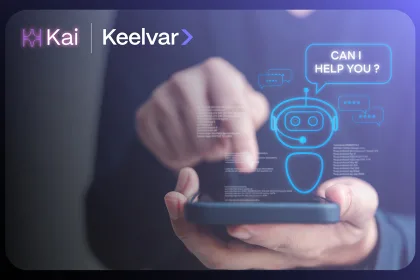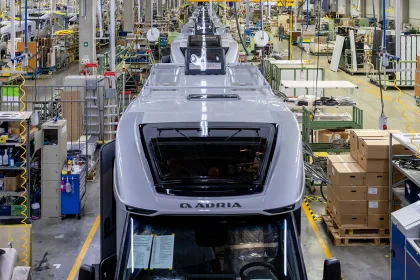Transaction banking in the Middle East is undergoing a digital transformation. How can banks effectively traverse this complex, fast moving landscape and embrace the digital age?
INTRODUCTION
Over the past decade, digitisation has been changing the shape of the finance industry in the Middle East, acting as an enabler for banks to meet evolving client needs for transparency and speed. Now, the COVID-19 pandemic is further accelerating this trend, with the uptake of digital technology capabilities reaching new levels.
Indeed, although today’s unprecedented environment, and the accompanying move to “working from home”, has caused considerable disruption, it is also having the positive effect of bringing the digitalisation agenda to the fore. With paper-based methods of corresponding and transacting not only impractical but often simply impossible in the circumstances, banks in the region have reported significant increases in the adoption and use of digital solutions. And, in a recent PwC survey, half of the Middle East’s CFOs indicated that they plan to accelerate automation and new ways of working.
COVID-19 is therefore helping to drive rapid change, paving the way for a more agile, digital future. Against this backdrop, banks need to support clients along their digital journeys and provide a holistic suite of solutions that meet the broad range of individual client needs. By delivering digital capabilities – through a combination of more traditional methods, cutting-edge technologies and strategic partnerships – banks in the Middle East can help clients optimise their position in the new digital era.
ENHANCING TRADITIONAL PAYMENT PROCESSES
Today’s fast-paced digital lifestyle means improving the speed and efficiency of domestic and cross-border payments is a key priority. The adoption of initiatives such as real-time payments and SWIFT gpi, is therefore increasing substantially in the Middle East.
Within the GCC, Bahrain has made the most progress to date, with its domestic near real-time payments system – Electronic Fund Transfer System (EFTS) – now in place. A new report has highlighted how real-time payments in Bahrain have surged during the pandemic. In fact, volumes grew more than in any other country in the past year, increasing by 657 percent.
Jordan is well-advanced on its real-time payments journey, while Saudi Arabia and the UAE are also introducing instant payments. In April 2019, Saudi Arabia announced plans to launch a real-time payments system. The new system will be run by Saudi Payments, a subsidiary of the Saudi Arabian Monetary Authority. Meanwhile, the UAE introduced an interim real-time payments solution in 2019 called Immediate Payment Instruction (IPI).
With businesses in the region increasingly operating cross-border, effecting streamlined, efficient, cost-effective and transparent international payment processes is key. SWIFT gpi is one of the most powerful developments transaction banking in recent years, and continues to gain traction across the Middle East. It addresses the inefficiencies that previously encumbered cross-border payments and the lack of transparency that often surrounds fees and payment execution.
INVESTING IN INNOVATIVE TECHNOLOGIES
As well as enhancing traditional processes, emerging technologies are helping banks to deliver entirely new capabilities.
Blockchain, for example, is continuing to be explored in the Middle East. MENA governments are creating strong legislative foundations for blockchain projects. With this support, banks and fintechs are developing blockchain-powered exchange systems to enhance existing processes in payments and trade. For example, Dubai Economy and Emirates NBD have announced launch of the UAE KYC blockchain platform that aims to facilitate secure digital customer onboarding, instant bank account functionality and sharing of verified KYC data. Elsewhere, the Central Bank of Bahrain has partnered with Fasset, a provider of blockchain-powered platforms, to test its blockchain-based sustainable infrastructure asset exchange solution.
Blockchain is, of course, just one emerging technology creating waves in the industry.
Optical character recognition (OCR) technology providers are sharpening their focus on Middle Eastern markets. OCR enables images of typed or handwritten text to be digitally converted into machine-encoded text, with content auto-populated into the required fields.
With the Middle East having one of the world’s highest smartphone penetrations at 97%, significant growth is expected as many industries look for the ability to instantly scan and digitalise information with a mobile device. With respect to trade, OCR technology could, for instance, be applied to internal operations to improve efficiencies and streamline transactions. By integrating OCR technology and custom-built APIs, it is possible for compliance reviews to be done automatically through machine learning.
Meanwhile, AI adoption is particularly strong in the Middle East. Fueled by Big Data, artificial intelligence (AI) applications can be taught to detect patterns and trends, gather insights and subsequently recommend required actions. With high engagement and solid returns on investments in the Middle East, AI adoption is projected to grow, with applications in areas such as customer service, logistics, and fraud prevention.
STRATEGIC PARTNERSHIPS
With new innovations and industry initiatives emerging rapidly, deciding where to focus can be challenging. Correspondent banking can support digitisation strategies and enable innovative capabilities without significant investment for local banks.
Non-compete correspondent banking alliances can play a mutually beneficial role in the Middle East, where local banks can benefit from the technological capabilities and extended reach of global specialists, while global banks gain access to the inimitable country-specific insights of local banks.
It is not only bank-bank partnerships that can add value. Bank-fintech partnerships can also be beneficial – especially with companies that specialise in a niche area, saving time and resources and potentially accelerating a bank’s learning curve and time to market with new solutions. Spurred on by a growing millennial population, the region is increasingly looking to leverage fintech developments for all-round improvements to the financial sector.
Looking ahead, as the importance of progressing to digital capabilities increasingly becomes a shared goal, the industry is set to accelerate its digitisation journey – fine tuning existing technologies, as well as exploring how to leverage new, innovative developments. It is up to banks to provide the support, tools and service clients need to flourish in the new digital world.


































